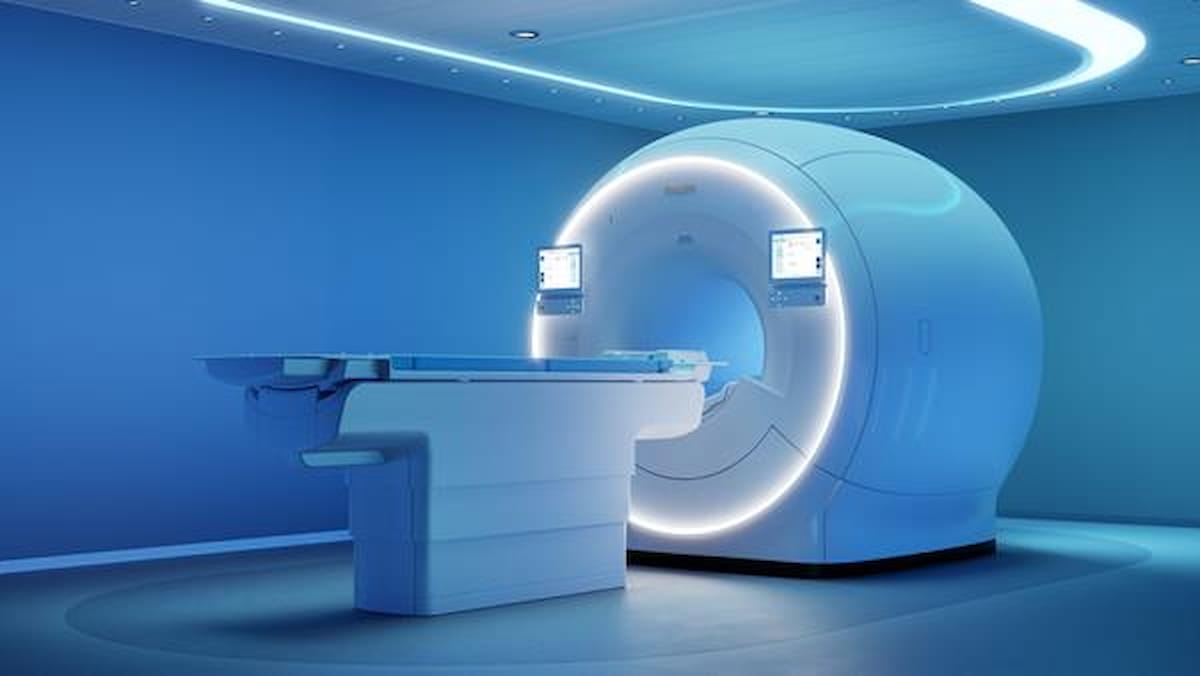Philips to Introduce AI-Powered, Helium-Free MRI System at RSNA
Offering a variety of AI-enabled tools to facilitate radiology workflow efficiency, the BlueSeal MRI system is reportedly the first wide bore, helium-free 1.5T MRI platform in the field.
Combining artificial intelligence (AI) enhancements for workflow efficiency with a lightweight design and helium-free operation, Philips will unveil the next-generation BlueSeal MRI system at the upcoming 2024 Radiological Society of North America (RSNA) annual meeting in Chicago.
Emphasizing an eco-friendly design, the BlueSeal 1.5T 70 cm MRI system is up to 1,700 kg lighter than comparable systems and the system’s lack of a need for a vent pipe provides additional flexibility with installation, according to Philips.
The next-generation, helium-free BlueSeal 1.5T MRI system will be introduced by Philips at the upcoming 2024 Radiological Society of North America (RSNA) annual meeting in Chicago. (Image courtesy of Philips.)

Philips emphasized that the BlueSeal MRI system also offers a variety of AI-enabled features including:
• automated planning, scanning and image processing for up to 80 percent of MRI procedures with the SmartExam feature;
• a SmartSpeed feature that enables up to 65 percent higher image resolution without additional scan time; and
• integrated imaging and reading with the cloud-based SmartReading technology, which also facilitates enhanced precision diagnosis of neurological conditions and prostate cancer through partnerships with icometrix and Quibim.
“With AI applications seamlessly integrated into our latest 1.5T BlueSeal scanner, we have now applied AI to every aspect of the MRI workflow – from patient setup and high-resolution image capture to quantitative data extraction, advanced diagnostics, and reporting. With this latest innovation, we continue our commitment to deliver wider access to quality MRI to more patients across multiple settings,” noted Ioannis Panagiotelis, Ph.D., the global business leader of MRI at Philips.
FDA Clears Virtually Helium-Free 1.5T MRI System from Siemens Healthineers
June 26th 2025Offering a cost- and resource-saving DryCool magnet technology, the Magnetom Flow.Ace MRI system reportedly requires 0.7 liters of liquid helium for cooling over the lifetime of the device in contrast to over 1,000 liters commonly utilized with conventional MRI platforms.
Multinational Study Reaffirms Value of Adjunctive AI for Prostate MRI
June 16th 2025The use of adjunctive AI in biparametric prostate MRI exams led to 3.3 percent and 3.4 percent increases in the AUC and specificity, respectively, for clinically significant prostate cancer (csPCa) in a 360-person cohort drawn from 53 facilities.
Study: AI-Generated ADC Maps from MRI More Than Double Specificity in Prostate Cancer Detection
June 5th 2025Emerging research showed that AI-generated ADC mapping from MRI led to significant increases in accuracy, PPV and specificity in comparison to conventional ADC mapping while achieving a 93 percent sensitivity for PCa.